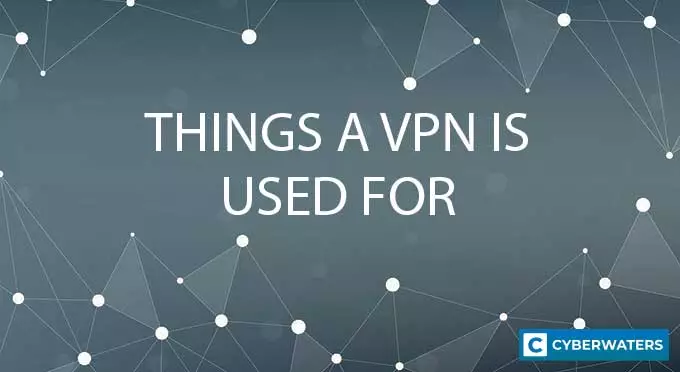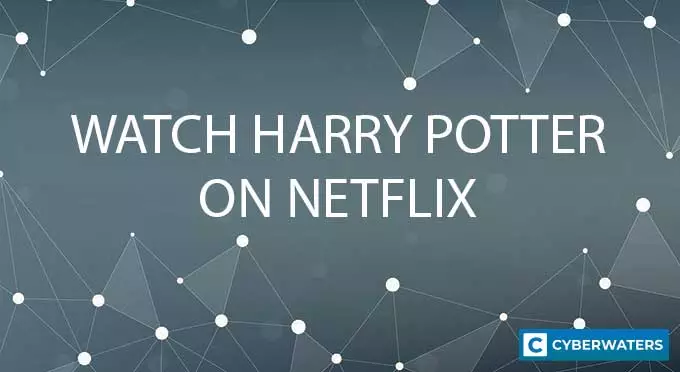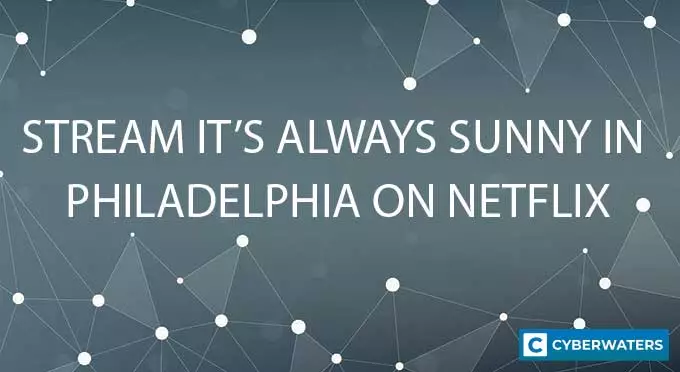VPN Uses: 17 Things a VPN Is Used For

A VPN is a tunneling software that encrypts and routes your web traffic through a server. It separates you from your web activities by hiding your IP address. This means you can enjoy the web in all its glory, without any restrictions.
So, what is a VPN used for? Generally speaking, VPNs can improve your overall web experience and security. Just look at some of the main VPN uses below:
- Hide your IP address from prying eyes
- Unblock streaming sites
- Bypass geo-restrictions of any country
- Torrent privately and safely
- Avoid internet speed throttling
- Get rid of trackers and targeted ads while surfing and shopping
But how many users take full advantage of this nifty software? Many of us use a VPN just to unblock Netflix or download movies without attracting a copyright strike. Why not optimize your VPN use if you’re paying for it?
You can put your VPN subscription to good use by learning what more it can do. This comprehensive guide lists and explains all the best uses for VPN.
Explainer: How a VPN Works
Before we get to the primary VPN purposes, let’s first take a moment to understand how a VPN works.
A VPN, short for virtual private network, is a software that first encrypts your web traffic before it leaves your device. This encryption turns your activities – such as browser use and downloads – into a cryptic message. If anyone bothers to intercept your activities, they will see gibberish, thanks to this VPN encryption.
After your encrypted traffic leaves your device, it is then routed through a server maintained by the VPN provider. This action hides your IP address. In other words, it switches your IP address with an arbitrary one generated by the VPN server. Your traffic is then sent to your destination after decryption, which is carried out by the VPN software itself. Your destination – a torrent tracker, for instance – will get your original message but it will be recorded as coming from another IP address.
To put it simply, a VPN does two things: it hides your web activities and switches your IP address. The IP hiding part is the root of most VPN uses as we will see later in this article. The switching part is also useful when it comes to accessing geoblocked content. Many of the VPN applications we’ll see are either a direct result of these two things or their product.
Legality of Using a VPN for Personal Use
It’s unfair how VPN is mostly perceived as a shady piece of software. Maybe its affiliation with torrenting and unblocking websites has something to do with it.
But to set the record straight, using a VPN for personal use is 100% legal in most parts of the world. What you use it for is where it can get tricky. For example, if you use a VPN to download a copy of a recent Hollywood blockbuster, you are most likely committing a crime depending on your local laws. If caught, you may land in trouble for piracy. Not for using VPN.
The same is true for all other VPN uses. You are less likely to get into trouble for using a VPN for any of the applications listed below than you are for actually doing something illegal. VPN or no VPN – it won’t matter if you use it for any illegal activity.
Your ISP or the law enforcement finding out that you use a VPN is also outside of the legal framework in most countries. Simply put, no one can question you for it unless there’s a specific anti-VPN rule you are breaking. For example, using a VPN at school may be frowned upon.
Test Your VPN Knowledge – Take A Quiz!
VPN Uses: 17 Things You Can Do With a VPN
Here’s a list of everything that you can do with a decent virtual private network. As noted above, these applications are narrowed down from the two main functions of a VPN i.e., encrypting your traffic and switching your IP.
1. Use a VPN to protect your privacy online
This is the most important application of a virtual private network. With it, you can keep prying eyes and snoopers at bay. These may include your internet service provider (ISP), local law enforcement, or some hacker.
When you connect to the internet through a VPN, your web traffic is encrypted and bounced off a VPN server. This not only isolates but also anonymizes your traffic. Anyone monitoring your connection cannot get past the encryption. If you live in a country that censors the web, using a VPN becomes critical.
Need a hand to find an ideal VPN? Here are our picks for the best VPNs for privacy.
2. Unblock geographical restrictions using a VPN
There’s nothing worse than getting ready to binge-watch a show only to find out that it’s moved from Netflix to some random OTT platform. To add to it, the show is not available in your country.
A tried and tested fix is to bypass the country-level restriction using a VPN. It switches your IP address, which fools the streaming platform into believing that you are viewing from another country. All you need to do is switch on the VPN, select a server in a country where the show is available, and hit play.
You can use a VPN to also bypass network-level blocks such as those at schools and colleges. Check out our top VPNs for streaming if you need help choosing the best.
3. Fight hacking attempts and other scams
When a hacker attacks your network or your device, they usually do it using your IP address. It gives the hacker details about your web location and traffic, which can be used to trick you into scams and malware attacks.
With a VPN, you can switch your IP address and hide yourself online. If a hacker does target you, they will be directed to the IP address assigned by your VPN. It will protect you from harm’s way.
4. Hide your torrenting activities
VPNs can be used to keep your IP address off public peer-to-peer (P2P) trackers. This way, when you download something off a torrent network, your original IP address will never be recorded. Anyone who might be monitoring these trackers to nab copyright law breakers won’t be able to find you.
Using a VPN tends to slow down your torrenting download speed, which is why you should use a high-quality VPN like AtlasVPN. Check out our other top VPN picks for torrenting.
5. Bypass internet speed throttling
Some ISPs, schools and colleges, private enterprises, and even local governments have a bad habit of reducing the speed of a web network. Your school may do it to manage the bandwidth, whereas your ISP may slow you down when you visit certain websites. There are several reasons and ways how a network’s speed could be throttled. And it may be happening to you right now.
Using a VPN is a good way to bypass such speed throttling. Since it switches your IP address, it doesn’t trigger the packet shaping and traffic policing conditions that may be set by the enforcing party.
6. Shop online locally and save money
By now, you may know that booking air tickets through a browser’s private mode is wise. Sometimes, doing so gets you a better deal as the site sees you as a new customer, not a returning one. This way you can avoid price discrimination and get the most out of your money.
The same goes for online shopping on international sites. Instead of a private browser, simply use a VPN to browse an ecommerce website as a local user. Connect to the server of that country to get local deals, which are often better and cheaper than what is shown to international users. This hack is also useful when booking flight tickets and hotels.
7. Use restricted apps
Regulating the internet is a common practice of governments these days. One country bans WhatsApp voice calls while another creates its own version of Twitter for its citizens. This can be annoying at times, especially if a particular app is banned in the country that you are visiting or studying in. A VPN can easily fix this by switching your IP address to a country where the app is allowed.
Next time you are in a country with app restrictions, simply turn on your VPN, choose a server in another continent, and use the app of your choice. However, be wary of such government regulations as getting caught can turn things ugly for you.
8. Fend off tracking and customized advertising
We discussed how a VPN protects your privacy online. But there’s a byproduct that is often ignored: fending off the search and social media algorithms and trackers.
These days ISPs, websites, browsers, and even entire operating systems track you and your details. They either use this data to force ads at you or sell them to those who do. Each and every data point – your location, your surfing data, your likes and dislikes – can be captured and used to target advertising at you.
With a VPN, you can prevent this to an extent. Since snoopers and hackers cannot tie back your web activities to you, you are less likely to get targeted advertising.
9. Protect your devices while working from a café
Call it pandemic fatigue, but some of us are aching to get out of our homes. This could mean working from your office or a nearby café.
While your office’s network may be already protected with a VPN, the same cannot be said about a café or a coworking space’s Wi-Fi network. It’s usually accessible to anyone in and near the café, and is not difficult to intercept.
Connecting to such a network and accessing your work files or making financial transactions can be risky. Anyone with a wrong intention could intercept your traffic while you are in the network and access your data. A VPN can prevent such an attack. Its encryption will prevent hackers and snoopers from reading your data, even if they manage to intercept it somehow.
10. Watch live television or streaming
Ask any sports fan and you will see how disappointed they are when it comes to restricted broadcasting of international sports events. Whether it is premier league soccer, Wimbledon, or MMA, watching sports events live can be both expensive and exhaustive. You not only need to get a subscription to a platform that streams the event live but may also need to pay extra for viewing. In worse cases, some sports events are pay-for-view.
With a VPN, you can even get free sports channels. First, figure out what online channels allow free viewing. Then, use a VPN to connect to a server in a country where the channels are available for free.
For example, the Indian Premier League (IPL) is broadcast for free on Indian channels. If you’re not in India, you only need to find a way to gain access to such a channel’s website. Your VPN will do the rest. If not free, it will at least bring down your expenses heavily. Check out the best VPNs for streaming.
11. Speed up online gaming
It’s true that a VPN reduces your overall internet speed. While that may be an issue in regular web browsing, it has a distinct advantage in online gaming. A VPN can ensure that your connection to a gaming server is stable throughout, especially when you are in the middle of an online competition.
In other words, a VPN can ensure that your network remains a low-latency network. This will prevent lagging and help maintain your gameplay experience. Here are our top VPNs for gaming.
12. Make use of unique VPN features
While VPN’s main job is to hide your IP address and encrypt your traffic, many providers go a step further and offer additional features. Some of these include:
- Kill switch to maintain VPN connection at all times
- Port forwarding for better torrent connections
- Split tunneling to protect select applications
- Multi-OS support
- Dedicated IPs
- DNS and IP leak protection
These features help you improve your web experience and stay better protected.
13. Spoof your GPS coordinates
Ever wanted to trick an app or software into believing that you are in a different location? Are you participating in a competition where they track your kilometers using a GPS-enabled app like Strava? Do you want to grab all of the Pokémons in Pokémon Go?
The answer to all those questions is to use a high-quality virtual private network. When you switch your IP address, your GPS location also changes. And this is enough to trick those apps into believing that you’re in a city in Lithuania or a beach in the Maldives. In reality, you may be loitering in your backyard in Louisiana.
14. Access the darknet
Some VPNs allow you to access the darknet (or dark web), an internet underground that’s not available for regular netizens. It’s a collection of obscure elements and is frequented by hackers, journalists, and other professionals. Both legal and illegal things – from bootlegs to cryptocurrencies to NFTs to private databases – are exchanged on the darknet markets. It’s mostly used as a network for anonymous communication and content sharing.
The dark net can only be accessed via the Tor network but some VPNs like NordVPN include Tor in their VPN functions.
15. Bypass censorship
Just like a VPN helps to unblock websites and app restrictions, it can also help bypass government-enforced censorship. This can be useful in countries like China, Iran, and Saudi Arabia where the government limits internet exposure to its citizens. With a VPN, you can continuously change your IP address (to a server outside the home country) and access the whole wide web without any restrictions.
16. Keep Internet communication private
Most modern instant messaging apps today do claim end-to-end encryption, but there’s no harm in adding another layer of security. Since these apps still communicate over the internet (VoIP), you are better off using a VPN to further encrypt your communication. You can even pay for it anonymously.
17. Create a private connection while telecommuting
Imagine you are outside but want to access your work files, which are in a secure folder on your personal computer. Sure, you can set up a remote access network and get to your folder through it. But how will you ensure that your connection is private?
With a VPN, you can ensure that. All you need to do is set up a VPN on your smartphone, connect to a reliable nearby server, and securely access your folders on the go.
Final Words on VPN Usage
Today a VPN is a must-have tool for any netizen. For a few dollars a month, it optimizes your web connection and adds a robust layer of security to everything you do online. With cybercrime, web hostility, and social media menace, it’s always better to be safe than sorry.
A little VPN app can help you navigate the whole web and experience it in its original form. What more reasons do you need to get one? Still not sure which one to buy? Here’s a quick guide.
VPN and privacy researcher

